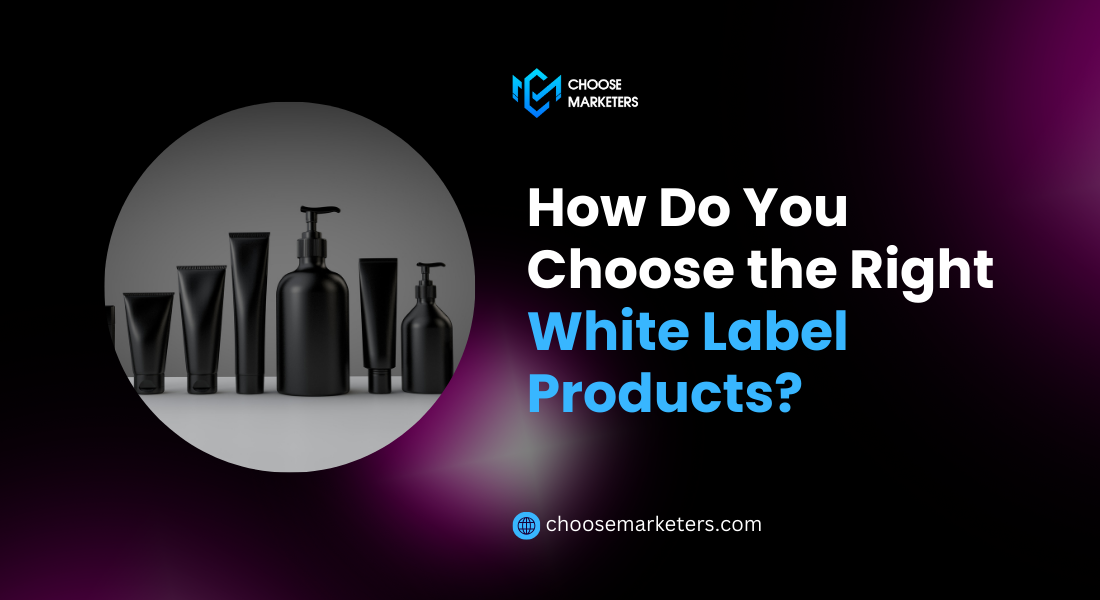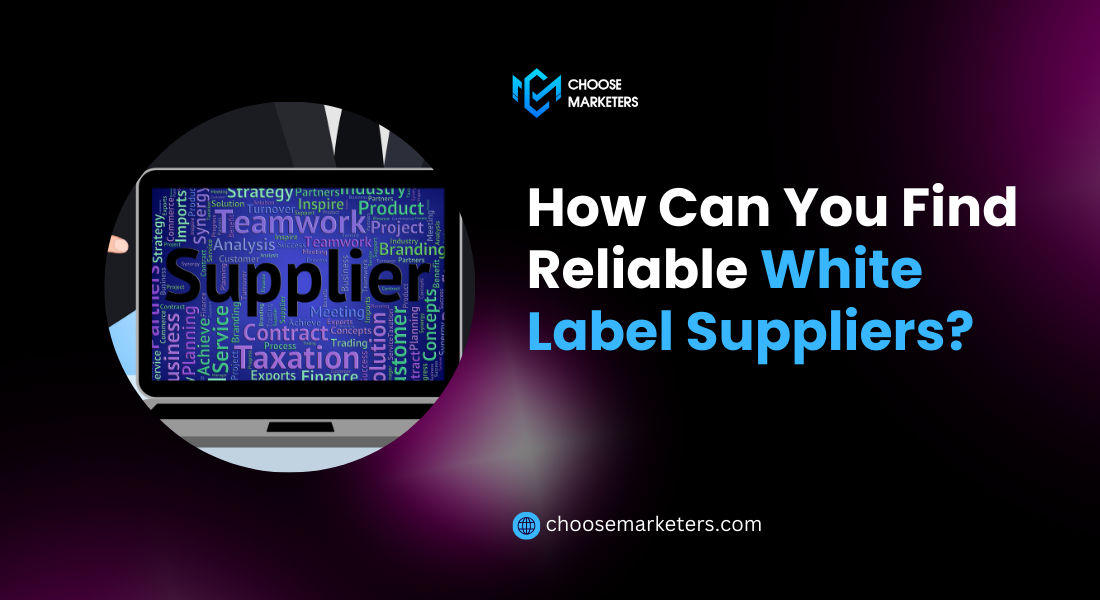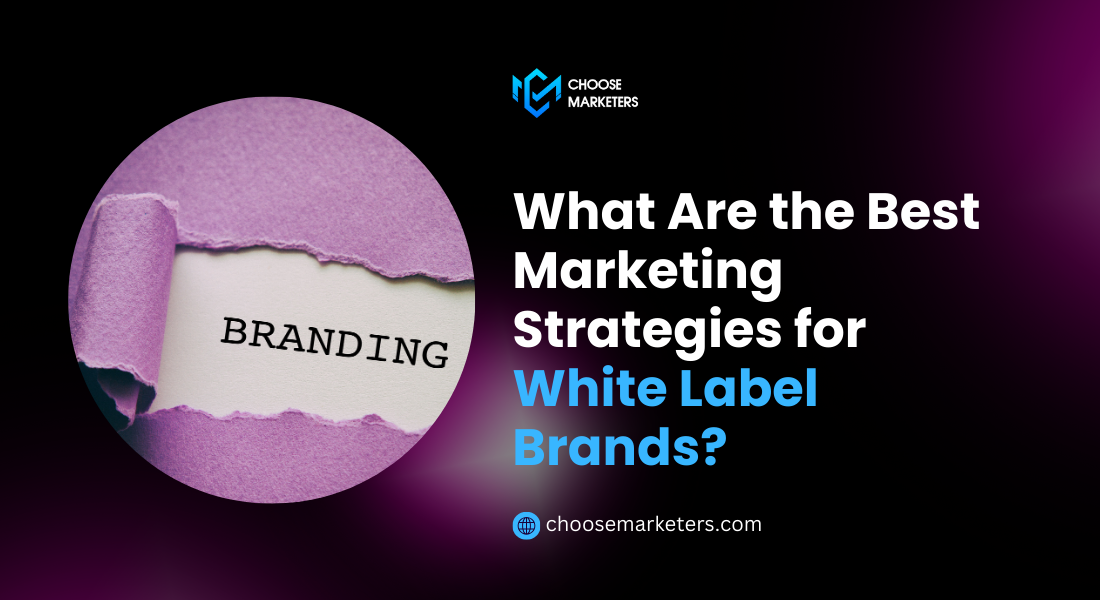

5 Proven Strategies to Profit from White Label Opportunities

What Are White Label Business Opportunities?
White label business opportunities allow entrepreneurs and businesses to market pre-existing products or services under their own brand. This model has become popular because of its scalability, low startup costs, and the ability to quickly enter various markets. From digital solutions to health and wellness products, white labeling is ideal for those who want to build a brand without the time and expense of product development.
Benefits of White Labeling for Entrepreneurs
White labeling offers a range of advantages that make it an attractive option for businesses:
- Low Initial Investment: Avoid the cost of research and development by rebranding existing products, allowing startups to launch with minimal overhead.
- Faster Time to Market: White label products are ready-made, which enables faster entry into the market, a key advantage in competitive sectors.
- Brand Flexibility: Customize packaging and branding to create a unique identity, even if the core product is used by multiple businesses.
- Reduced Operational Risk: White labeling limits the risks of creating a new product, as the items are already tested and proven in the market.
Popular White Label Product Categories
Several industries have embraced white labeling business to meet the diverse needs of consumers:
- Software and Digital Services: From CRM systems to project management tools, white label software solutions allow companies to offer valuable digital services under their brand.
- Health and Wellness: Demand is high for private-label supplements, skincare products, and essential oils, making health and wellness an ideal sector for white labeling.
- Print-on-Demand Merchandise: White label print-on-demand items like T-shirts, mugs, and accessories allow companies to sell branded merchandise without inventory.
- Eco-Friendly Products: With rising demand for sustainable options, white label items such as reusable bags and bamboo utensils appeal to environmentally-conscious consumers.
Factors to Consider When Choosing a White Label Opportunity
To maximize success in white labeling, it’s crucial to evaluate each opportunity based on key criteria:
- Supplier Reliability and Quality Control: Choose suppliers with a proven track record and stringent quality checks. Sample products to verify they meet your brand standards.
- Customization Options: Look for suppliers who offer flexibility in branding elements, including packaging, colors, and design adjustments, to help your brand stand out.
- Market Demand and Profitability: Conduct market research to confirm that the chosen white label products have strong demand and favorable margins.
- Scalability: Select products and suppliers that can scale with demand to support growth without compromising product availability or quality.
What Are the Top Industries for White Labeling?

White labeling is an efficient way to enter high-demand markets with minimal investment. By partnering with the right providers, businesses can rebrand and resell products across several lucrative sectors. The following industries offer some of the best white label opportunities:
Software and Digital Solutions
The demand for digital solutions like CRM tools, marketing automation platforms, and e-commerce website builders is growing rapidly. White labeling in this sector allows companies to offer these services under their brand, without needing to develop complex systems from scratch. This is where Choose Marketers excels, offering tailored white label SEO marketing and content marketing services to help businesses scale and enhance their digital presence.
Health and Wellness Products
With increasing consumer focus on self-care, the health and wellness industry presents a prime opportunity for white labeling.Products such as dietary supplements, skincare items, and fitness equipment are, in fact, in high demand. Choose Marketers supports businesses in this space with specialized content marketing strategies and link-building services to boost product visibility and market engagement.
E-commerce and Print-on-Demand Merchandise
E-commerce offers vast potential for white label products, especially in the print-on-demand (POD) sector. Whether it’s apparel, drinkware, or home décor, POD services allow businesses to sell branded products without managing inventory. Choose Marketers helps optimize your e-commerce presence through white label SEO marketing and social media strategies to drive more sales and brand recognition.
Sustainable and Eco-Friendly Products
With consumers becoming more eco-conscious, the demand for sustainable and eco-friendly white label products like reusable bags, biodegradable packaging, and personal care items has surged. Choose Marketers can assist eco-friendly brands in growing their online footprint through comprehensive social media marketing and content strategies that align with sustainability values.
Pet Products and Accessories
The booming pet industry is another top contender for white label businesses. From pet treats to grooming accessories, white labeling provides a way to tap into a loyal, growing customer base. At Choose Marketers, we offer virtual assistant services and specialized SEO marketing strategies that can help pet product businesses manage operations efficiently and improve their online presence.
Food and Beverage
White label opportunities in the food and beverage industry range from organic snacks to gourmet drinks. Companies can rebrand these high-quality products and target niche markets. Choose Marketers helps food and beverage businesses with SEO marketing, content creation, and social media promotion to expand their reach and customer base.
Financial and Legal Services
The financial and legal industries offer several white label services, including accounting software, payroll solutions, and legal templates. Moreover, by utilizing Choose Marketers’ link-building and content marketing expertise, businesses in these sectors can enhance their visibility and establish authority in their niche.
Education and Online Courses
With online learning continuing to rise, white label solutions for educational platforms and digital learning materials are in demand. Choose Marketers offers comprehensive SEO and content marketing services that can help educational providers grow their audience, increase engagement, and build their brand in a competitive market.
How Do You Choose the Right White Label Products?

Selecting the right white label products is critical to building a successful business and establishing a brand that resonates with your target audience. With numerous options across various industries, it’s essential to approach product selection strategically. Here are key factors to consider when choosing white label products:
Market Demand and Trends
Understanding current market demand and consumer trends is essential. Therefore, look for products that align with trending industries—such as health and wellness, eco-friendly goods, or digital services as these often offer strong consumer interest and growth potential. Additionally, analyze market reports, follow industry news, and research popular categories on platforms like Google Trends or Amazon.
Profit Margins and Pricing
Evaluate the profitability of potential products by examining the costs associated with white labeling, including production, customization, and shipping. Calculate the product’s potential retail price and assess its market competitiveness to ensure you can achieve sustainable profit margins. High-margin products, such as supplements, digital products, and premium eco-friendly items, can be particularly advantageous in a competitive marketplace.
Brand Relevance and Cohesion
Select products that complement your brand identity and values. For instance, if your brand promotes sustainability, eco-friendly products like bamboo utensils or biodegradable packaging align well with your message. Consistency between your brand’s mission and the products you offer builds consumer trust and loyalty.
Supplier Reputation and Product Quality
The reliability and reputation of your suppliers are vital to your success. Research suppliers thoroughly, read reviews, and request product samples to assess quality. A strong supplier relationship ensures you receive consistent, high-quality products, helping you maintain a positive brand reputation.
Customization Options
Customization can give your brand a unique edge, even in a crowded market. Consider white label products that offer branding flexibility, such as custom packaging, labeling, and color options. Customization is particularly valuable in competitive markets like cosmetics, supplements, and apparel, where brand differentiation can drive consumer preference.
Scalability and Long-Term Potential
Choose products that offer scalability, allowing you to expand your offerings as your business grows. Products with long-term market relevance—such as pet products, fitness gear, or digital marketing tools—can provide a stable foundation for growth. Ensure your chosen supplier can handle larger orders if demand increases, so you can scale without supply disruptions.
What Are White Label Software Solutions?
White label software solutions enable businesses to offer high-quality, pre-built software under their own brand, making it possible to meet market demand without the need for extensive software development. These solutions are particularly beneficial for companies looking to expand their service offerings with minimal investment in tech infrastructure.
Benefits of White Label Software
White label software provides a range of advantages that make it an attractive option for companies across industries:
- Cost Efficiency: Developing custom software is expensive and time-intensive. White label solutions allow businesses to avoid development costs, as the software is already built, tested, and market-ready.
- Faster Market Entry: White label software can be launched under a brand’s identity within weeks, allowing businesses to capture demand quickly and stay competitive.
- Customization and Branding: Many white label solutions offer branding options, such as logo integration and color schemes, allowing businesses to maintain a consistent brand identity.
- Technical Support and Maintenance: Providers often handle software updates, maintenance, and support, which reduces the operational burden on the business and ensures a smooth user experience.
Popular Types of White Label Software Solutions
White label software solutions are diverse, catering to a variety of business needs and sectors:
- Customer Relationship Management (CRM): CRM software helps businesses manage client interactions and streamline sales processes. White label CRM solutions are popular in industries such as real estate, finance, and healthcare, where customer management is essential.
- Marketing Automation: White label marketing platforms support email marketing, social media scheduling, and analytics, providing businesses with a complete tool to enhance brand visibility and engagement.
- E-commerce and Website Builders: White label website builders and e-commerce platforms allow businesses to offer customized site-building tools to clients, enabling them to establish an online presence quickly and professionally.
- Project Management and Collaboration: Project management tools streamline workflows and improve team collaboration. White label options in this area are ideal for agencies, consultants, and companies that manage multiple client projects.
- Cybersecurity Solutions: With rising cybersecurity threats, white label security software—such as antivirus, VPNs, and data protection tools—allows businesses to offer essential protection to clients under their own brand, building trust and enhancing service offerings.
Factors to Consider When Selecting White Label Software
Choosing the right white label software involves careful evaluation to ensure alignment with business goals and market needs:
- Reliability and Security: It’s essential to verify that the software meets industry standards for data security and reliability, especially in fields like finance and healthcare where data protection is critical.
- Flexibility and Integration: Consider solutions that are compatible with other tools and can integrate seamlessly into your existing tech stack, making it easier to manage and scale.
- User Experience and Support: Opt for software that is user-friendly and backed by reliable technical support, which helps reduce friction and ensures a positive experience for end-users.
How Can You Find Reliable White Label Suppliers?

Finding a reliable white label supplier is essential for building a successful business. Additionally, the right supplier ensures that your products meet high standards of quality, ethical production, and timely delivery. Therefore, here’s how to identify and choose the best suppliers for your white-label business:
- Research the Supplier’s Reputation: Start by evaluating the reputation of potential suppliers. Look for reviews, testimonials, and case studies from other businesses that have worked with them. Reliable suppliers will have a proven track record of delivering quality products and providing excellent customer service.
- Assess Product Quality: The quality of your white-labeled products is crucial for maintaining your brand’s reputation. Request samples from potential suppliers to verify the quality before committing. Ensure they meet your product specifications, including packaging, labeling, and performance standards.
- Verify Certifications and Compliance: Suppliers should comply with relevant industry standards and certifications. This includes quality control measures, environmental sustainability, and ethical manufacturing practices. For example, products may need certifications such as ISO for quality or organic certifications for food products.
- Check Manufacturing Capabilities: Ensure that the supplier has the capacity to handle your order volume and can scale with your business as it grows. A supplier with robust production capabilities will be able to meet demand without delays, especially during peak seasons.
- Evaluate Communication and Customer Support: Good communication is key to a smooth partnership. A reliable supplier should be responsive to your queries and provide clear timelines and updates. Strong customer support will also ensure that any issues are resolved promptly and professionally.
- Negotiate Terms and Pricing: Transparent pricing and favorable terms are essential for maintaining profitability in your white-label business. When assessing suppliers, ensure that their pricing structures are competitive and align with your business model. Look for suppliers who offer flexibility in minimum order quantities and pricing based on volume.
- Attend Trade Shows and Industry Events: Industry trade shows and events are great places to meet suppliers in person, see their products, and discuss your needs. Networking at these events allows you to make informed decisions about potential partnerships and gather recommendations from other businesses in your industry.
What Are the Best Marketing Strategies for White Label Brands?

Effective marketing is essential for the success of any white-label brand. Since white-label products are typically identical to those of other brands, your marketing strategies need to focus on differentiating your brand and building customer loyalty. Here are some proven strategies to market white-label products effectively:
- Develop a Strong Brand Identity: In a white-label business, branding is crucial. Create a distinctive logo, color scheme, and voice that reflects your values and resonates with your target audience. Focus on crafting a compelling story about your brand to create an emotional connection with customers. Even if your products are generic, the experience your brand provides should stand out.
- Leverage Social Media Marketing: Social media is one of the most powerful tools for white-label brands to connect with their audience. Use platforms like Instagram, Facebook, and TikTok to share high-quality visuals of your products, engage with your followers, and run targeted ads. Social proof, such as user-generated content and testimonials, can also boost trust in your brand.
- Influencer Partnerships: Partnering with influencers in your niche can drive significant exposure for your white-label products. Influencers can create content around your products, share their experiences, and introduce your brand to a larger audience. Choose influencers whose followers align with your target market to maximize the effectiveness of these partnerships.
- Content Marketing and SEO: Creating valuable content related to your products or industry can help drive traffic to your website and establish your authority in the market. Moreover, develop blog posts, videos, and guides that answer customer questions, share useful tips, or demonstrate your products. Additionally, optimize your content for search engines using relevant keywords like “best white-label business opportunities” to improve your organic reach.
- Offer Special Promotions and Discounts: Promotions such as discounts, limited-time offers, or free shipping can incentivize customers to try your products. Bundling your white-label products in packages or offering exclusive deals for new customers can also encourage purchases.
- Email Marketing Campaigns: Build an email list to stay connected with your customers. In addition, send regular newsletters with product updates, promotions, and valuable content. Furthermore, segment your list to tailor the messaging for different customer groups, ensuring relevance and increasing engagement.
- Utilize Customer Reviews and Testimonials: Positive customer reviews and testimonials can serve as powerful endorsements of your white-label products. Encourage satisfied customers to leave reviews on your website or third-party platforms like Amazon or Google Reviews. Display these testimonials prominently on your product pages to increase trust and credibility.
- Retail and E-Commerce Channels: Selling on popular e-commerce platforms like Amazon, Etsy, or eBay can expand your reach. Many consumers trust these platforms, so listing your white-label products there can help establish credibility. Additionally, setting up your own online store gives you full control over the brand experience.
- Referral Programs: Encourage your existing customers to refer friends and family in exchange for rewards like discounts or free products. Referral programs can incentivize word-of-mouth marketing, which is especially effective in the white-label business, where personal recommendations carry weight.
- Target Niche Markets: Identify and target specific niche markets that are more likely to value your products. Whether it’s organic skincare products or specialized pet accessories, focusing on a niche market allows you to tailor your marketing efforts and stand out in a competitive field.
What Are Some Case Studies of Successful White Label Businesses?
Several businesses have effectively used white labeling to build their brands and achieve substantial growth. By outsourcing production while focusing on branding and marketing, these companies have minimized risks and maximized profits. Below are some notable case studies that demonstrate how white-labeling can be a powerful business strategy.
- Amazon Basics
Amazon’s private-label brand, Amazon Basics, is a prime example of a successful white-label business. The brand offers a wide range of everyday products, from electronics accessories to home goods, all manufactured by third-party suppliers but sold under Amazon’s brand name.
Amazon leverages its vast customer base, advanced logistics network, and data-driven insights to develop and market these products. The success of Amazon Basics highlights the importance of strong branding and using a trusted platform to reach a large audience. - White Label Beauty Products (e.g., MintPear)
MintPear, a beauty brand specializing in skincare and cosmetics, uses a white-label model to deliver high-quality products under its own brand. By collaborating with established manufacturers who handle production, MintPear focuses on marketing and customer engagement.
MintPear’s ability to create a strong, recognizable brand identity while offering effective, premium products has contributed to its success in the competitive beauty market. This case underscores how effective branding and niche targeting can lead to success in the white-label business. - Dollar Shave Club
Dollar Shave Club disrupted the razor industry by offering white-labeled shaving products with a direct-to-consumer model. The company partnered with manufacturers to create shaving products and accessories that they could sell under their brand.
Through clever marketing and subscription-based services, Dollar Shave Club grew rapidly and was eventually acquired by Unilever for $1 billion. The company’s success shows the power of innovative marketing, customer convenience, and delivering quality products at an affordable price. - Fujifilm’s White-Label Partnerships
Fujifilm, a global leader in imaging and optical products, has successfully entered multiple markets through white-label partnerships. The company collaborates with manufacturers to produce photographic and video equipment that is rebranded and sold by other businesses.
Fujifilm’s success in white-labeling comes from its expertise in high-quality technology and its ability to form strategic partnerships with other companies. This case highlights how leveraging technological expertise and forming strong alliances can lead to significant success in the white-label market. - Kirkland Signature (Costco)
Costco’s private-label brand, Kirkland Signature, offers a range of products from food and beverages to household items. These products are often manufactured by leading brands but are sold under Costco’s own name.
By focusing on high-quality products and maintaining a strong relationship with suppliers, Costco has built one of the most successful private-label brands in the retail industry. As a result, Kirkland’s growth reflects the importance of quality control, supplier relationships, and strong retail distribution.
What Are the Challenges and Risks in White Labeling?
While white-labeling offers numerous benefits, such as cost savings and scalability, it also comes with its own set of challenges and risks. Understanding these risks is crucial for anyone looking to enter the white-label market and ensure long-term success. Below are some of the key challenges businesses may face when engaging in white-labeling.
- Limited Control Over Product Quality
One of the most significant challenges in white-labeling is the lack of control over the manufacturing process. As you are outsourcing production to third-party suppliers, ensuring consistent product quality can be difficult. If the supplier fails to maintain high standards, it could negatively affect your brand’s reputation.
To mitigate this, it’s essential to choose reliable suppliers with proven track records and implement strict quality control measures. - Brand Differentiation Difficulties
Since white-label products are identical to those of other brands, standing out in the marketplace can be challenging. Without unique features or innovations, it’s tough to create a distinct brand identity. This often leads to competing on price, which can diminish profit margins.
Investing in strong branding, marketing strategies, and customer experience can help differentiate your white-label products and create a loyal customer base. - Dependence on Third-Party Suppliers
Relying on third-party suppliers for production exposes you to risks related to supply chain disruptions, production delays, or supplier insolvency. Any issues with your supplier, such as stock shortages or quality failures, can directly impact your ability to meet customer demand and maintain sales.
To reduce this risk, building strong, transparent relationships with suppliers and having backup suppliers in place can help ensure continuity in business operations. - Legal and Regulatory Compliance
White-label businesses may face legal challenges related to intellectual property rights, labeling requirements, and product safety standards. Moreover, depending on your market, failing to comply with local regulations or misusing trademarks can lead to fines, legal disputes, or product recalls. Therefore, it’s crucial to conduct thorough research on relevant laws and work with legal professionals to ensure compliance with regulations in all regions where your products will be sold. - Market Saturation
White-labeling is a popular business model, which can lead to high competition in certain product categories. As a result, with numerous businesses offering similar products, it can be difficult to capture market share. Furthermore, this saturation can push down prices and reduce profitability. However, finding niche markets or offering superior customer service and added value can help you navigate a saturated market. - Lack of Product Ownership
Since white-label products are produced by other manufacturers, you don’t have ownership over the product’s design or features. This lack of product ownership may limit your ability to innovate or make significant changes to meet evolving customer needs.
To address this, some businesses choose to customize white-label products by adding unique features or offering tailored versions to meet the needs of specific customer segments. - Brand Reputation Risks
Your brand reputation is closely tied to the quality of the white-label products you sell. If there is a defect or issue with the product, your business will bear the brunt of customer dissatisfaction. As you don’t control manufacturing, resolving issues might take longer, further impacting customer trust.
To minimize these risks, having an efficient customer service team and clear return/exchange policies can help protect your brand’s reputation. - Price Pressure
Since white-label products are often cheaper than branded alternatives, they are typically marketed as budget-friendly options. This price-driven competition can lead to significant pressure on margins, especially if you are in a highly competitive industry.
To maintain profitability, it’s essential to balance competitive pricing with quality marketing, added services, or unique selling propositions.
Navigating these challenges requires strategic planning, diligent supplier management, and a focus on delivering quality and value to customers. Additionally, by addressing these risks head-on, you can position your white-label business for success in a competitive marketplace.
Frequently Asked Questions FAQs
- What are white label business opportunities? White label business opportunities involve selling products or services that are produced by one company and rebranded or marketed under another company’s name. This model allows businesses to offer products without the need for production or development, providing a cost-effective way to enter a market. It is widely used in industries like technology, health, wellness, and consumer goods.
- How do I find reliable white label suppliers? Finding reliable white-label suppliers requires thorough research. Start by looking for manufacturers with a proven track record in the industry and positive reviews from other businesses. It’s essential to establish clear communication channels, verify their certifications, and ask for product samples before committing. Attending trade shows or using online supplier directories can also help connect with trusted manufacturers.
- Can white label businesses be profitable? Yes, white-label businesses can be highly profitable. Since the products are already developed and ready for resale, the main cost involves marketing, branding, and distribution. Profitability increases when businesses focus on targeting niche markets, creating strong branding, and providing exceptional customer service. However, profitability depends on factors such as competitive pricing, product quality, and demand.
- What are the best industries for white labeling? White-label opportunities are available in various industries. Some of the most profitable sectors include health and wellness, software solutions, print-on-demand merchandise, pet products, and eco-friendly goods. The best industries are those with high consumer demand and low entry barriers, allowing businesses to scale quickly without significant upfront investment.
- What are the risks of white-labeling? While white-labeling offers many benefits, it comes with risks such as limited control over product quality, reliance on third-party suppliers, and difficulties in differentiation from competitors. Businesses also face challenges in maintaining brand identity and customer loyalty. To mitigate these risks, it’s important to choose reliable suppliers, focus on customer experience, and invest in effective marketing strategies.
